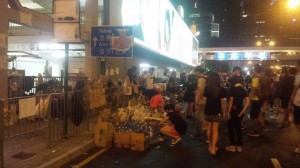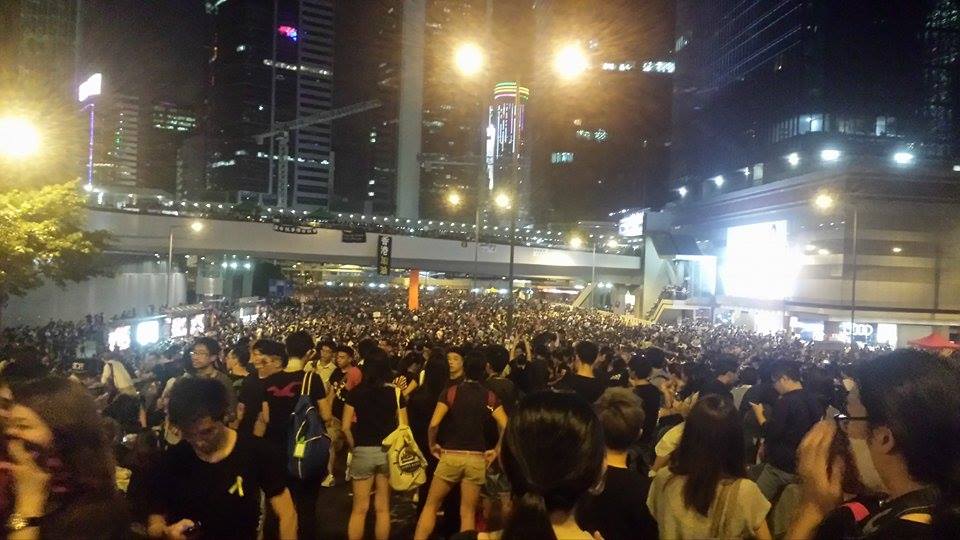Tear gas and pepper spray. That is what is greeting the students in Hong Kong, who are now demonstrating for increased freedom and democracy. In Stockholm, a supportive rally is organized.

Photo: Privately-owned.
Thousands of students and Hong Kong residents have gathered on the streets of Hong Kong to express their discontent. Hong Kong, a special administrative region of the People’s Republic of China, was previously promised the option to choose which candidates to vote for in the 2017 Chief Executive elections, which is the equivalent of President. It is something that the Chinese regime now rejects, causing students to protest.
“It’s heart-aching to witness how the police are handling this. The students are not aggressive but the police using tear gas in their direction anyways,” says a student who is present at the demonstrations and who wants to remain anonymous.
“Some people are talking about the 1989 Tiananmen Square Massacre, comparing that incident to the current event. Many people are scared that history will repeat itself, but I personally don’t think so. If that’s the case, Hong Kong authorities have sunk way too low,” says the student.
Might escalate
The protests are led by Hong Kong Federation of Students, a student cooperation organization operating at the eight universities in Hong Kong. The protests are a part of the Occupy Central movement, which has been prompting the question of increased democracy in Hong Kong for several years. It is unclear for how long the student protests will continue, but there is a risk they escalate.
“This Wednesday is the National Day of China, which is usually celebrated with fireworks. That particular event has been cancelled due to poor on-site infrastructure for the fireworks. Pro-Beijing activists are still discussing the possibility of celebrating, and that could lead to a clash,” says a protesting student.

Photo: Privately-owned.
Supportive protest rally in Stockholm
In Stockholm, a protest rally is being organized in support of the students in Hong Kong. The participants are requested to bring umbrellas, facemasks and sunglasses to the manifestation, which takes place at 2 pm this Wednesday.
“Supportive protest manifestations are organized around the whole world. Many people from Hong Kong live abroad and are concerned about what is currently going on. We want to show our support for the struggle for freedom and increased democracy,” says Joyce Chan, Uppsala University language student organizing Wednesday’s manifestation.
“The frustration is widely spread among the students, because of Beijing hindering the democratization process,” she says.
Background facts on Hong Kong protests
- Until the year of 1997, Hong Kong was a British colony. In connection with the transfer of sovereignty to the People’s Republic of China, it was decided Hong Kong would figure as a Special Administrative Region of China, operating under the policy “One country, two systems.” This principle will remain in effect until 2047. The transfer would also enable Hong Kong to develop its own government to a certain degree, which Hong Kong residents do not believe has materialized.
- The Tiananmen Square Massacre occurred June 5, 1989, when Chinese officials ordered tanks to open fire towards unarmed protesters and students, who had been demonstrating in the square for a month. The students demanded an increased level of political democracy. Thousands of students were killed in the massacre.
Text: Carl-Johan Kullving
Translation: Maximilian Aleman-Tennell
First published at lundagard.se






